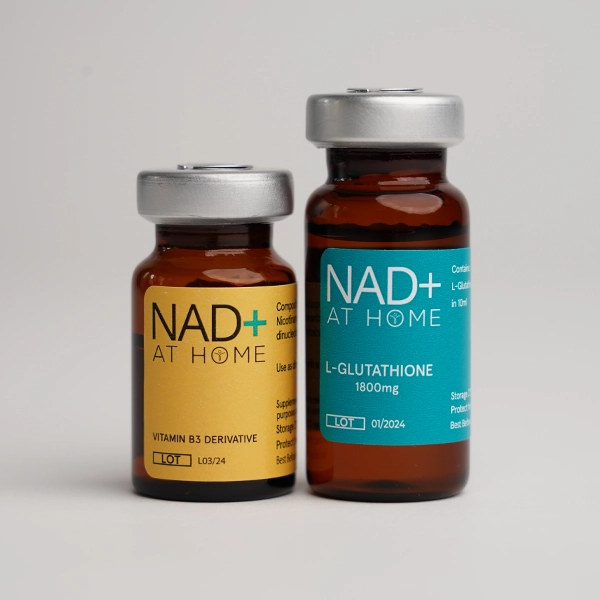No products in your basket.
Looks like you haven’t added anything to your basket yet. Check out our featured products below to get started.
Category:
NAD+
More and more people are becoming aware of NAD+ and the important effects this incredible molecule has on energy, longevity and health.
NAD+ is an organic molecule found in all living cells and it is a vital part of processes involved in cellular energy and ageing. NAD+ levels naturally decline as you age and boosting your NAD+ can be a great way to improve your energy, focus, recovery and overall well-being.
But at what age does NAD+ decline start and what, if anything, can you do about it?
Unfortunately, it’s a scientifically established fact that NAD+ levels do start to decline as we age.
It can vary between individuals but in general NAD+ levels by age rise through childhood before peaking in early adulthood and starting to decline.
In general, the average person will see NAD+ levels decline by 40-50% by age 50, compared to their levels as a young adult. Other factors can also lead to a faster decline in NAD+ levels, including:

Because NAD+ plays such an important role in cellular health and energy, depleted levels of the molecule can have a wide range of negative effects.
Some common signs that NAD+ levels may be in decline include:
If you’re wondering how to restore NAD+ levels, the good news is that you can do so safely and easily in a number of ways. Adopting a healthy lifestyle with age-appropriate exercise, a balanced diet, and a consistent sleep routine can certainly help. A holistic healthy lifestyle will also be beneficial in many other ways, but while it may slow the rate of NAD+ decline as you get older, it won’t stop it entirely or produce a significant boost.
Taking supplements of what are known as NAD+ precursors, such as nicotinamide mononucleotide (NMN) and nicotinamide riboside (NR), can give NAD+ levels a boost, but the most effective way of bolstering your NAD+ levels is through direct NAD+ therapy. This can be delivered orally, usually in the shape of tablets, or via IV NAD+ therapy.
NAD+ injection pens typically involve self-administered subcutaneous injections with an easy-to-use injection pen. As this bypasses the digestive system, the NAD+ enters directly into your bloodstream for a high-impact delivery with the highest rate of absorption.
NAD+ capsules offer slightly less optimal absorption but are specially designed to provide an extremely effective NAD+ boost with no needles required!
NAD + therapy is great for providing a one-off boost to NAD+ levels, but regular use can also help combat and slow the NAD+ decline that comes with age.
Alongside a balanced diet and healthy lifestyle, regular NAD+ therapy could help you to:
Noticing signs of slowed recovery or mental fatigue? Do you feel constantly tired or have started to notice the signs of premature ageing? If healthy lifestyle options alone aren’t quite doing the trick, it might be worth considering the potential benefits of NAD+ therapy.
If you’re looking for NAD therapy for ageing UK options, our NAD+ Injection Pen and Liposomal NAD+ capsules offer two great ways to give your NAD+ a boost.